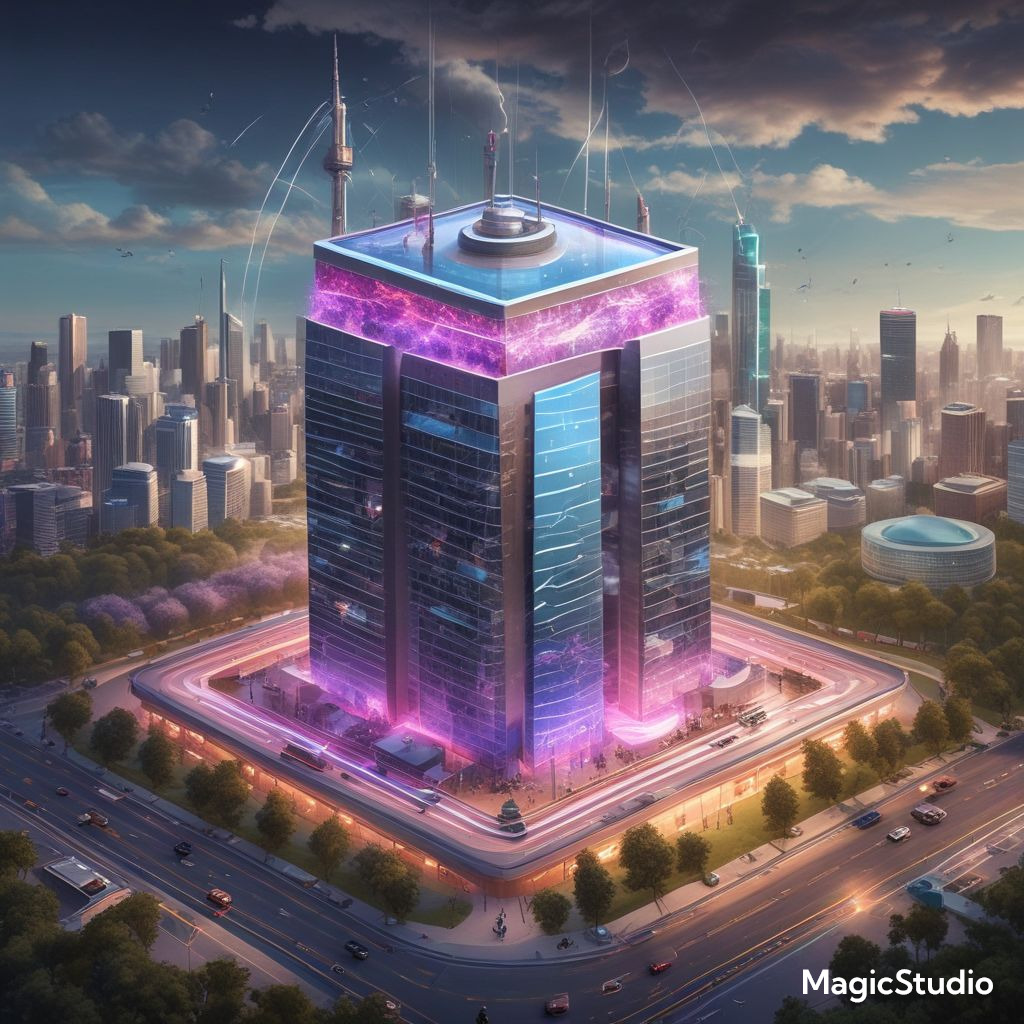The Impact of 5G Technology: What to Expect in 2025 and Beyond

As 5G networks roll out across the globe, this next-generation wireless technology promises to revolutionize the way we connect, communicate, and interact with devices. From faster internet speeds to new opportunities for innovation, 5G will have a profound impact on several industries. Here’s a look at what to expect from 5G technology in 2025 and beyond.
1. Ultra-Fast Internet Speeds: Revolutionizing Connectivity
One of the most significant benefits of 5G technology is its incredibly fast internet speeds. With download speeds potentially reaching 10 gigabits per second (Gbps), 5G will offer speeds up to 100 times faster than 4G networks.
What to expect:
- Seamless Streaming: 5G will eliminate buffering and reduce lag, allowing users to stream 4K and 8K videos, live sports, and high-definition content without interruptions.
- Faster Downloads and Uploads: Whether you’re downloading large files, gaming, or using cloud-based applications, 5G will make everything faster and more efficient.
- Low Latency: The low latency of 5G networks (as low as 1 millisecond) will ensure faster communication between devices, making real-time experiences more responsive.
Why it matters: The faster internet speeds offered by 5G will enable smoother online experiences, benefiting both individuals and businesses that rely on high-speed connectivity for work, entertainment, and innovation.
2. The Rise of the Internet of Things (IoT)
5G technology will act as a catalyst for the growth of the Internet of Things (IoT), where billions of devices are connected to the internet and communicate with one another. With its low latency and high bandwidth, 5G will support the mass deployment of IoT devices in homes, cities, and industries.
What to expect:
- Smart Homes: 5G will make it easier to control and manage smart home devices, such as thermostats, security systems, and appliances, all from your smartphone or voice assistant.
- Smart Cities: From smart traffic lights to waste management, 5G will enable cities to become more connected, efficient, and sustainable.
- Connected Cars: Autonomous vehicles will thrive on 5G, allowing for faster communication between vehicles, traffic lights, and infrastructure, resulting in safer roads and more efficient transportation systems.
Why it matters: The growth of IoT, powered by 5G, will lead to smarter cities and homes, more efficient transportation, and the creation of entirely new business opportunities across industries.
3. Enhanced Augmented Reality (AR) and Virtual Reality (VR) Experiences
5G’s high-speed, low-latency connections will transform industries like gaming, education, and entertainment by enabling enhanced AR and VR experiences. With 5G, AR and VR applications will become more immersive and responsive, offering real-time interactions that were previously impossible.
What to expect:
- Gaming: Gamers will experience more lifelike virtual environments with ultra-low latency, reduced lag, and seamless multiplayer experiences in AR and VR games.
- Remote Collaboration: Professionals will be able to collaborate in virtual spaces, where teams can meet in a fully immersive environment, enhancing remote work and virtual meetings.
- AR Shopping and Advertising: Retailers will leverage AR technology to offer virtual try-ons and immersive shopping experiences, allowing customers to interact with products from home.
Why it matters: With 5G’s ability to support high-quality AR and VR experiences, industries can innovate in how they engage consumers, provide services, and offer entertainment, leading to more interactive and immersive experiences.
4. Transforming Healthcare: Telemedicine and Remote Monitoring
The healthcare industry is poised for a massive transformation with the advent of 5G technology. The ability to transmit large amounts of medical data in real-time with minimal latency will make remote healthcare and telemedicine more accessible and efficient.
What to expect:
- Telemedicine: 5G will make it possible for doctors to conduct virtual consultations with patients, using high-definition video calls and real-time diagnostics to provide more accurate and timely care.
- Remote Monitoring: 5G-powered wearables will enable real-time health monitoring, allowing healthcare providers to track patients’ vital signs, activity levels, and other health metrics remotely.
- Robotic Surgery: Surgeons will be able to perform delicate procedures remotely using robotic systems powered by 5G, with minimal delay between commands and actions.
Why it matters: 5G will enable doctors to provide healthcare services remotely, improve patient care, and increase the accessibility of medical services for people in rural or underserved areas.
5. 5G and the Future of Smart Manufacturing
Manufacturing will undergo a significant transformation with the help of 5G. The high-speed, reliable connectivity of 5G networks will enable more advanced automation, real-time data analytics, and improved collaboration in factories and production lines.
What to expect:
- Automation: Robots and machines will communicate and operate more efficiently, allowing for faster and more precise production lines.
- Predictive Maintenance: 5G-enabled sensors will continuously monitor machinery, identifying potential issues before they lead to breakdowns, reducing downtime and maintenance costs.
- Supply Chain Optimization: Real-time tracking of goods and inventory, powered by 5G, will make supply chains more transparent, efficient, and adaptable to changes.
Why it matters: With 5G, manufacturing will become more streamlined, cost-effective, and flexible, leading to increased productivity and efficiency in production processes.
6. 5G and Cloud Computing: Unlocking New Potential
Cloud computing will reach new heights with 5G, allowing businesses and consumers to access data and applications faster and more reliably. The combination of 5G and cloud technology will create a seamless experience for users and enable real-time data processing on a massive scale.
What to expect:
- Edge Computing: With 5G, data processing will move closer to the edge of the network, enabling faster response times and more efficient use of resources.
- Cloud Gaming: 5G will enable seamless cloud gaming experiences, where users can stream games directly from the cloud without the need for expensive hardware.
- Instant Cloud Access: Businesses will be able to access and share large datasets in real-time, improving collaboration and decision-making.
Why it matters: The combination of 5G and cloud computing will create new opportunities for businesses to innovate, improve efficiency, and deliver faster services to consumers.
7. Challenges of 5G Implementation
Despite the many benefits, the widespread adoption of 5G will come with several challenges, including infrastructure costs, security concerns, and regulatory hurdles.
What to expect:
- High Deployment Costs: Building 5G infrastructure will be expensive and time-consuming, particularly in rural and remote areas.
- Security Risks: With more devices connected to the 5G network, the potential for cyberattacks and privacy breaches will increase, requiring robust security measures.
- Regulatory Issues: Governments and regulatory bodies will need to address issues related to spectrum allocation, data privacy, and the overall management of 5G networks.
Why it matters: Addressing these challenges will require collaboration between governments, businesses, and telecom providers to ensure a smooth and secure rollout of 5G technology worldwide.
Conclusion: 5G Will Shape the Future of Technology
5G technology is poised to unlock a new era of connectivity and innovation. From ultra-fast internet speeds to transforming industries like healthcare, entertainment, and manufacturing, 5G will have a profound impact on our lives. As we move toward 2025, we can expect 5G to power the next wave of technological advancements, offering new opportunities and challenges for businesses and consumers alike.



